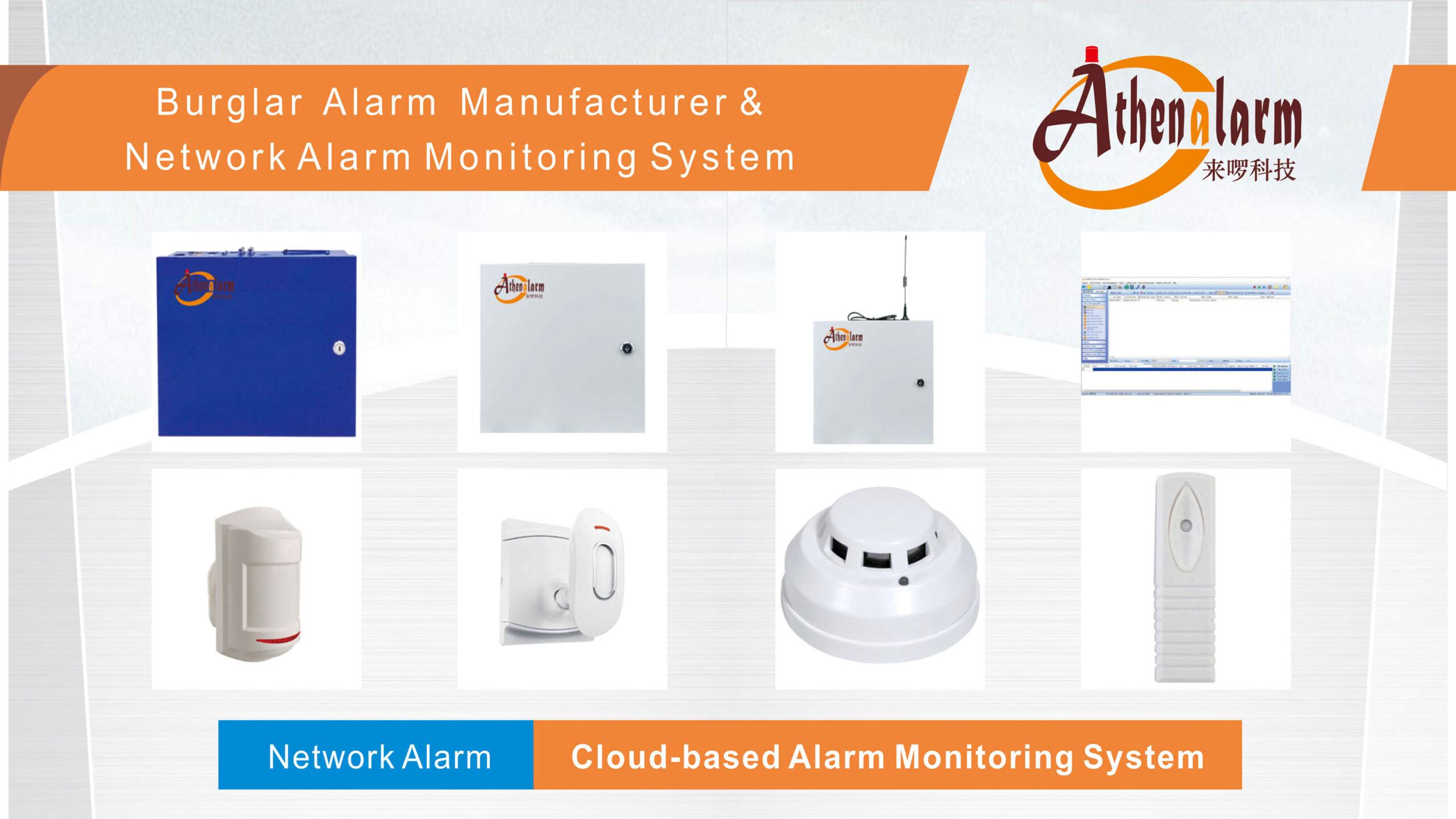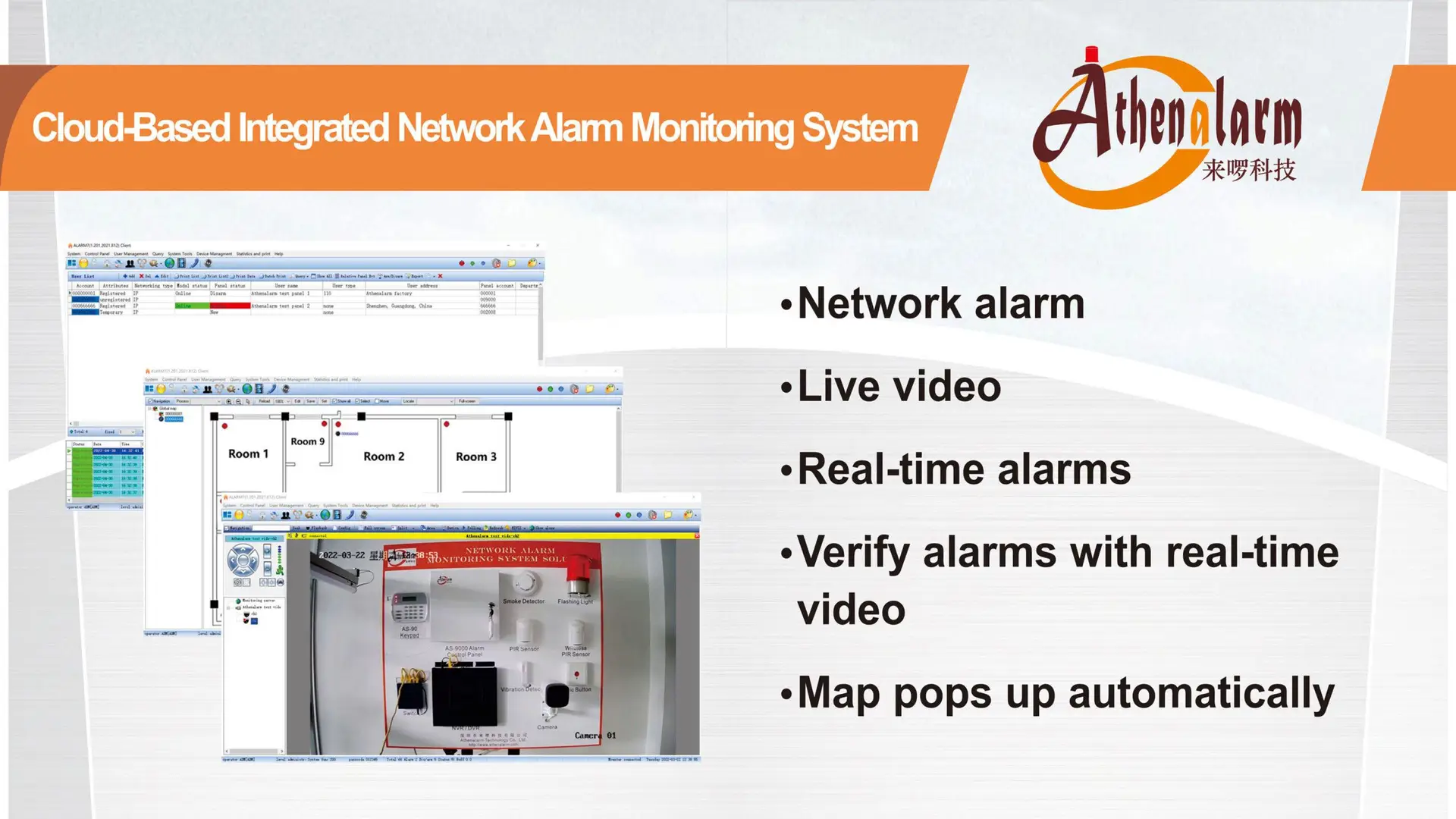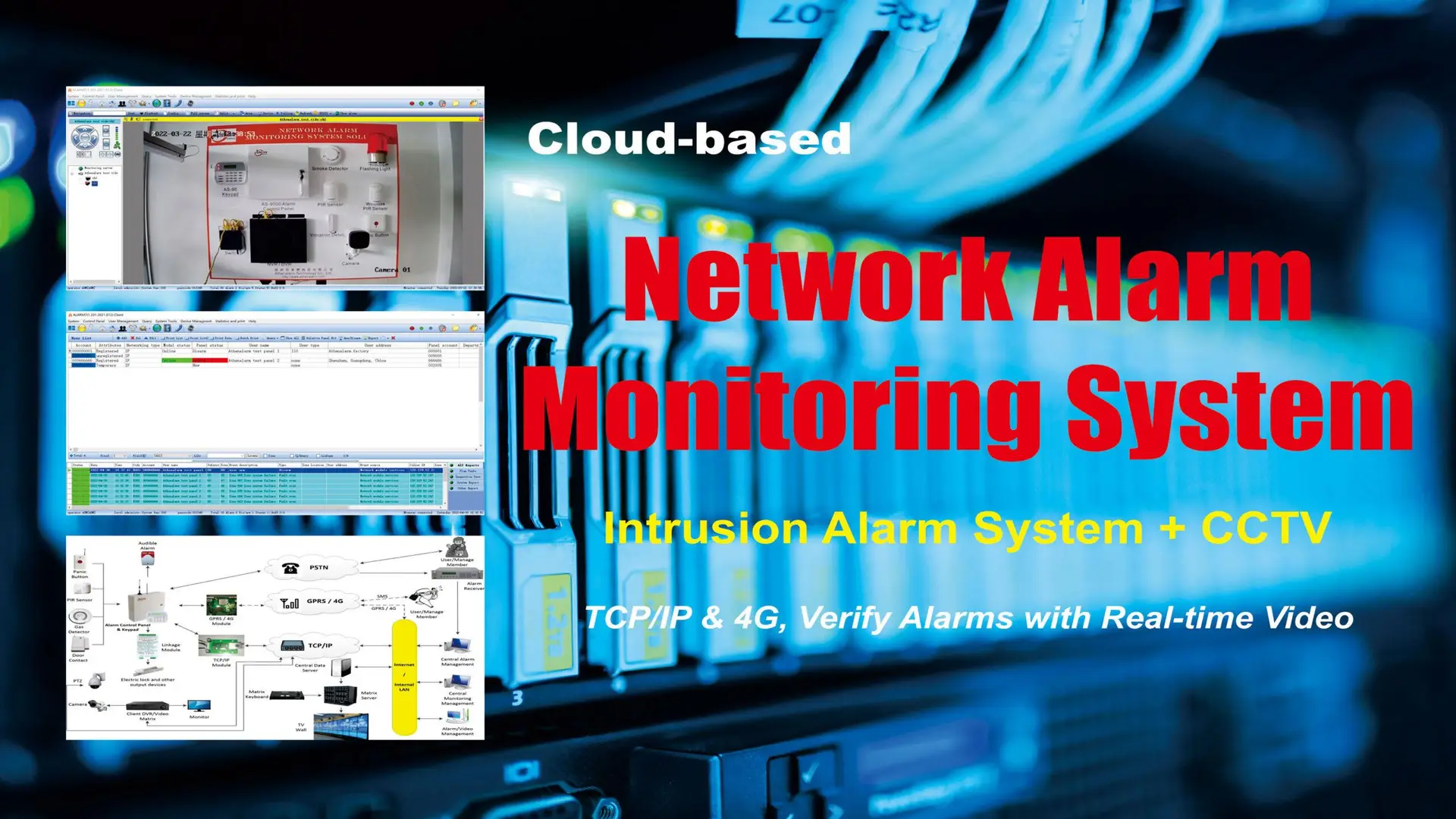



Alarm Monitoring Services: Essential for 24/7 Protection
In today’s ever-changing security landscape, alarm monitoring services are crucial for ensuring continuous, round-the-clock protection for both commercial and residential properties. These services go beyond simply sounding an alarm in response to an incident—they provide real-time surveillance, immediate alerts, and proactive measures against security threats. Whether you’re safeguarding a small business, a large corporate facility, or a personal home, 24/7 alarm monitoring is an indispensable component of any comprehensive security strategy.
This article explores the critical importance of alarm monitoring services, how they operate, the technologies that make them effective, and the key benefits they offer. By the end, business owners and security decision-makers will have a comprehensive understanding of how alarm monitoring services work and why they are essential for continuous protection.
1. The Growing Importance of Alarm Monitoring Services
(1) 24/7 Protection: The Backbone of Alarm Monitoring
The primary advantage of alarm monitoring services is their ability to offer uninterrupted protection. While traditional security systems may only react to threats by triggering an alarm, without monitoring, these systems remain silent after activation. Alarm monitoring, however, ensures that every event—from break-ins to fires to system malfunctions—is immediately detected and handled with the appropriate response.
True 24/7 monitoring guarantees someone is always on alert, ready to respond. Whether the situation involves law enforcement dispatch, emergency responders, or notifying property owners, timely intervention minimizes the potential damage caused by security incidents.
Key Takeaway: A passive alarm alerts you, but only a monitored system ensures timely intervention.
(2) Reducing Response Time and Minimizing Damage
A key challenge with non-monitored alarm systems is the delay between the alarm’s activation and the initiation of a response. Alarm monitoring services reduce this delay by automatically alerting the right parties the moment an alarm is triggered.
For example, in the event of a break-in, a monitored system sends an alert to the monitoring center. From there, trained security personnel verify the situation and dispatch law enforcement to the location. This reduces the potential for property damage or theft and prevents costly losses.
Key Takeaway: The faster the response, the less damage and theft occurs.
(3) Real-Time Alerts and Remote Monitoring
Modern alarm monitoring services provide real-time alerts, allowing property owners to receive immediate information about the nature and location of a security event. These alerts can be delivered via phone calls, texts, emails, or mobile apps.
Additionally, many services offer remote monitoring, giving business owners or property managers the ability to view live footage, receive updates, and even control system features from anywhere. This capability provides a level of control and peace of mind, even when far from the property.
Key Takeaway: Remote monitoring gives you control, even when you’re miles away from the site.
2. How Alarm Monitoring Services Work
(1) The Role of Monitoring Centers
Alarm monitoring services typically operate through centralized monitoring stations, which are staffed 24/7 by security professionals trained to respond to alarm events. These centers use advanced technology to track alerts, verify their legitimacy, and initiate appropriate responses based on predefined protocols.
When an alarm is triggered, the signal is sent to the monitoring center, where it is promptly assessed. Depending on the alarm type, the monitoring center may contact the property owner to verify the event, or immediately notify emergency responders.
Key Takeaway: Not all monitoring centers are equal—ensure yours is UL-listed for optimal reliability and security.
(2) Types of Alarm Monitoring Signals
Alarm monitoring systems can process a range of signal types, each corresponding to different security events:
- Intrusion Signals: Triggered by motion sensors or door/window alarms during break-ins.
- Fire and Carbon Monoxide Alerts: Activated by smoke, heat, or CO detectors.
- Panic or Duress Signals: Silent alerts allowing users to discreetly notify authorities.
- System Health Monitoring: Notifies the monitoring center of technical issues like low batteries or faulty sensors.
Key Takeaway: Alarm monitoring covers a range of potential threats, from break-ins to fire and environmental hazards.
(3) Communication Protocols
Effective communication is the backbone of alarm monitoring services. Methods of communication between the monitoring center and the property owner or authorities include:
- Voice Communication: The monitoring center may call to verify the alarm and determine whether emergency response is necessary.
- Two-Way Audio: Advanced systems include two-way communication, enabling direct contact with those on-site, which is especially useful for verifying suspicious activity.
- Mobile Alerts: Mobile alerts keep business owners connected, enabling them to respond quickly, no matter where they are.
Key Takeaway: Two-way communication and mobile alerts ensure you’re always in the loop, no matter the situation.
3. Key Benefits of Alarm Monitoring Services
(1) Enhanced Security and Peace of Mind
The primary benefit of alarm monitoring services is the added layer of security and peace of mind they provide. With 24/7 surveillance, businesses and homeowners can rest assured that any security threat will be addressed immediately.
Key Takeaway: With continuous monitoring, you’re always protected, no matter where you are.
(2) Lower Insurance Premiums
Many insurance providers offer discounts to those with monitored alarm systems, as these systems reduce the likelihood of damage or loss. Over time, the savings on insurance premiums can offset the cost of the monitoring service.
Key Takeaway: A monitored alarm system may help reduce your insurance premiums.
(3) Compliance with Industry Regulations
For businesses in regulated industries—such as healthcare, finance, and pharmaceuticals—alarm monitoring services are often required to meet specific security standards. These services help ensure compliance with industry regulations and demonstrate a commitment to protecting sensitive assets and data.
Key Takeaway: Alarm monitoring helps businesses stay compliant with regulations and safeguard sensitive information.
(4) Protection Against a Variety of Threats
Unlike traditional alarm systems, alarm monitoring services offer protection from a wide array of threats, including theft, fire, carbon monoxide poisoning, flooding, and more.
Key Takeaway: A good alarm monitoring service offers protection from multiple risks—both physical and environmental.
(5) Improved Emergency Response
In emergencies, fast response times are crucial. Alarm monitoring services ensure quicker emergency responses, minimizing damage and improving safety for employees, customers, and property.
Key Takeaway: Rapid responses help protect property and people during emergencies.
4. How to Choose the Right Alarm Monitoring Service
(1) Assess Your Security Needs
Begin by evaluating your security requirements. Consider factors such as the size and type of your property, the level of security needed, and any additional features you might require (e.g., video surveillance, environmental monitoring).
Key Takeaway: Tailored solutions maximize security effectiveness.
(2) Evaluate the Monitoring Center’s Reputation
Ensure that the monitoring center is reputable and meets industry standards. Look for certifications like UL listing, which ensures reliability and adherence to best practices.
Key Takeaway: Choose a reputable monitoring center with the necessary industry certifications.
(3) Understand Response Times
Inquire about response times and procedures for notifying local authorities or emergency responders. Fast response times are essential in protecting your property.
Key Takeaway: Prioritize centers that offer fast, reliable responses.
(4) Consider Integration with Other Security Systems
Look for an alarm monitoring service that can integrate smoothly with existing security systems, such as video surveillance, access control, or environmental monitoring sensors.
Key Takeaway: Seamless integration enhances overall security effectiveness.
(5) Review Customer Support and Availability
Ensure the monitoring service offers 24/7 customer support for troubleshooting or inquiries. This is vital for ongoing peace of mind.
Key Takeaway: 24/7 customer support is essential for smooth operations.
5. Conclusion: Why Alarm Monitoring Services Are a Must-Have
In today’s fast-paced world, ensuring continuous protection is more than a convenience—it’s a necessity. Alarm monitoring services offer businesses and homeowners peace of mind by providing around-the-clock monitoring and rapid responses to security threats. With real-time alerts, reduced response times, and comprehensive protection, alarm monitoring services are essential for any effective security strategy.
Investing in alarm monitoring not only boosts security but also helps with compliance, lowers insurance costs, and ensures the safety of employees, assets, and customers. For businesses looking to strengthen their security posture, alarm monitoring is an indispensable tool for success.
